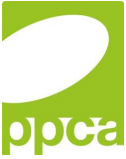Copyright stoush leaves artist body disheartened, accuses radio of ‘depriving’ regional listeners
 The Phonographic Performance Company of Australia (PPCA) has said it is disheartened that a number of local commercial regional stations have chosen to shut down their internet simulcasting services rather than take up an interim licence scheme.
The Phonographic Performance Company of Australia (PPCA) has said it is disheartened that a number of local commercial regional stations have chosen to shut down their internet simulcasting services rather than take up an interim licence scheme.
Around 200 local radio stations shut down their streaming services on Friday after the introduction of the interim scheme following a Federal Court ruling in February last year they fall outside the definition of a “broadcast” under the Copyright Act and are therefore not covered by existing licences to commercial radio networks.
In a statement the PPCA said: “The PPCA regrets that Commercial Radio Australia (CRA) has chosen to deprive regional listeners of local programming, rather than take up the interim licence scheme negotiated between CRA (on behalf of its members) and PPCA. The terms and conditions of the interim scheme were agreed after lengthy negotiations between PPCA and CRA, and were subsequently considered and then confirmed by the full Copyright Tribunal in December 2013.”
CRA has supported its members in electing not to take up an interim scheme which would allow them to continue their internet simulcast, with CEO Joan Warner saying stations are concerned fees introduced “may be back dated to the start of the interim licence and the financial liability amassed by radio stations would be cost prohibitive, particularly for regional stations”.


I hope this issue is resolved quickly sooner rather than later and that metro stations (not talkback stations) don’t turn off streaming because this would lead to massive complaints from listeners on their facebook pages (there will be complaints until the dispute is over). The Federal Government needs to step in on this streaming issue now before its too late. The Record Industry’s claims are out of date in this day and age Internet Radio (Including ABC/SBS/Community-Narrowcast/Online Only Stations) is dying unless action is taken right away and right now. Along with the broadcasters I’m frustrated and very angry.
As i said the other day I strongly urge all of your readers of this article and comment is to contact your local MP and the communications minister Malcolm Turnbull to express your concerns about this and if you make enough noise so that the stations affect can resume streaming online.
Thank you for reading this comment and please spread the word so that this unfair issue can be resolved quickly. The future of radio is online/digital and they can’t be left behind.
If the big metro stations stopped, then people will complain. Never heard of the PPCA, but they sound like [moderated by Mumbrella] who only serve their interests. It’s bad enough that some sports are blocked from online streaming because foxtel has those rights.